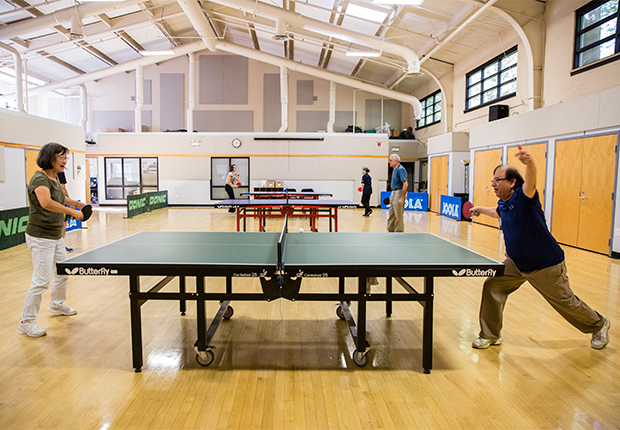AARP Eye Center

By Aliya S. King
Cities and towns around the world are taking steps to make sure they are growing in ways that support older residents. In New Jersey, two communities—Princeton and Montclair—have officially joined the global movement to become more age-friendly.
When Susan Hoskins, executive director of the Princeton Senior Resource Center, learned about the AARP Network of Age-Friendly Communities, she knew hers should be added to the list.
Communities must show progress in several areas, such as walkability and affordable transportation, to gain the designation, and Princeton had been doing that.
“We knew that it was a great way to acknowledge what we’d already done,” Hoskins said. “And it also gives us an opportunity to see what we can do to further extend our goals in terms of services for our older residents.”
From opening senior centers to making sidewalks and curbs more wheelchair accessible, there are large and small ways communities can become more age-friendly.
Good communication in multiple formats (print and digital) is imperative, Hoskins said. There are some programs and services available that many older residents don’t know about.
“We’ve had meetings and they’ll mention the idea of transportation to doctor’s appointments. And I say, ‘We already have that,’ ” Hoskins recalled. “All of the improvements mean nothing if people don’t know they exist.”
Addressing housing needs
On another issue, Princeton Mayor Liz Lempert is committed to increasing affordable housing so that older adults can downsize without having to move out of the community.
“In the past two years we’ve developed over 100 units of affordable housing,” Lempert said. “And we’re also looking at our zoning laws to see what we can do to provide even more options.”
While AARP assists communities to be designated as age-friendly, the program is officially part of the World Health Organization’s Global Network of Age-friendly Cities and Communities. An application is submitted to the AARP network, along with an assessment and a three-year action plan.
Across the country, more than 125 communities representing 56 million people have joined the AARP network. Cities include Los Angeles, Atlanta and Boston.
In Montclair, Katie York, the director of senior services and the Lifelong Montclair aging-in-place initiative, wanted to achieve the designation to formally recognize the value of older adults.
York also addressed the need to communicate effectively by developing a guide to senior services. One of the more popular programs is the Montclair Institute for Lifelong Learning (the MILL).
“It’s a collaboration of several local community organizations offering free high-level classes to Montclair-area seniors over six weeks,” York said. Classes include tai chi and art history, and many have long waiting lists.
In addition to lifelong learning, walkability is a core tenet of being an age-friendly community.
“Many seniors rely heavily on walking as a mode of transportation,” York said. “As we make areas in town more walkable, it not only benefits our seniors but people of every age and ability.”
In Princeton, Lempert credits the age-friendly designation with keeping older residents at the forefront of city planning, from open spaces to housing needs: “It helps to remind us of our priorities and stay true to our blueprint for our seniors.”
For more information about the AARP Age-Friendly Network, go to aarp.org/agefriendly.
Aliya S. King is a writer living in Bloomfield, N.J.























































